EdChoice Public Opinion Tracker: Top Takeaways December 2020
This week, we’ve posted reports and our findings based on our most recent tracking poll results. You can browse our national and state dashboards—detailing what we learned about public opinion at the end of 2020—at the EdChoice Public Opinion Tracker.
Each quarter, Morning Consult conducts two surveys on our behalf. The first is our tracking poll, which is based on a nationally representative sample of adults 18 years and older (N = 2,200, in the field December 11–17). We also conduct a second survey, administered to a nationally representative sample of K–12 teachers (N = 1,000, in the field December 11–20). With additional sampling, we obtained responses from 1,290 parents of school-age children so we can report more reliable information about parent subgroups by demographic.
In a nutshell: Last month, we asked new questions about COVID-19 vaccinations and to what degree people are comfortable sharing their views about the pandemic and other current events. There are clear differences between how teachers and the public respond to those questions. With legislative sessions starting in state capitals around the country, as well as the new Biden Administration and new Congress assuming office in D.C. this month, public opinion can inform responsive policymaking about the pandemic, schooling and the completion of vaccinations. How could teachers, school parents and the public respond in coming months? Surveys offer signals.
As always, please let me know at paul@edchoice.org if you have any questions about our data or findings, or if you have ideas for new questions or topics.
Here are our latest key findings.
1. Teachers are much more likely to say they will get vaccinated than the general public or school parents. Majorities of teachers, parents and the public believe a COVID-19 vaccination should either be mandatory or encouraged for K-12 teachers, staff and students. However, at least 60 percent or more currently oppose vaccination mandates for school personnel or students.
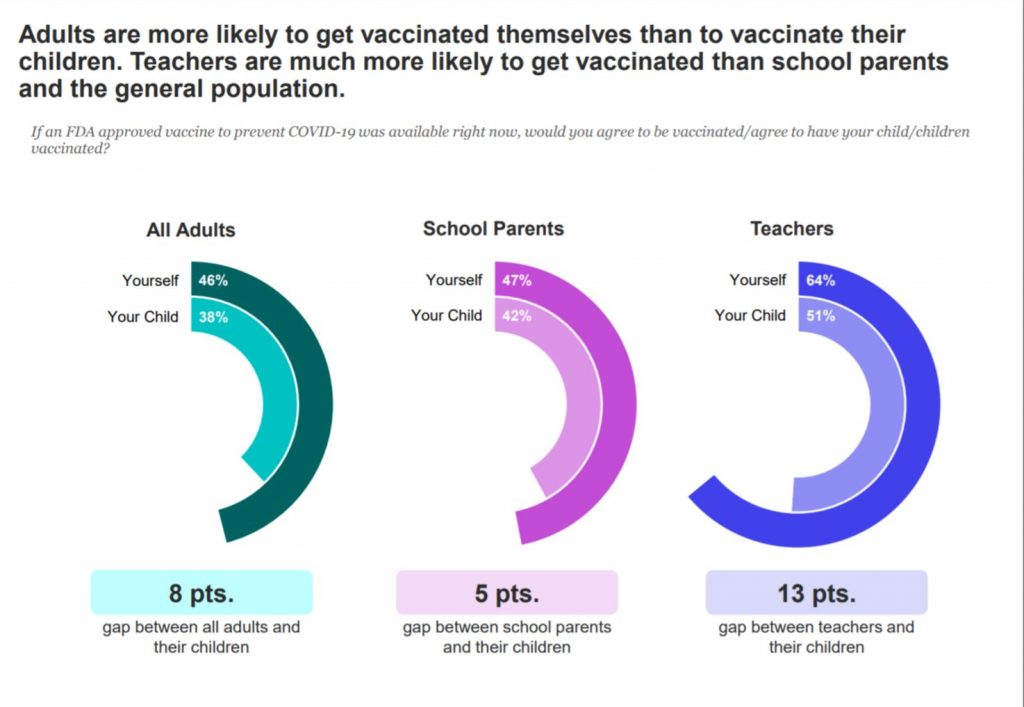
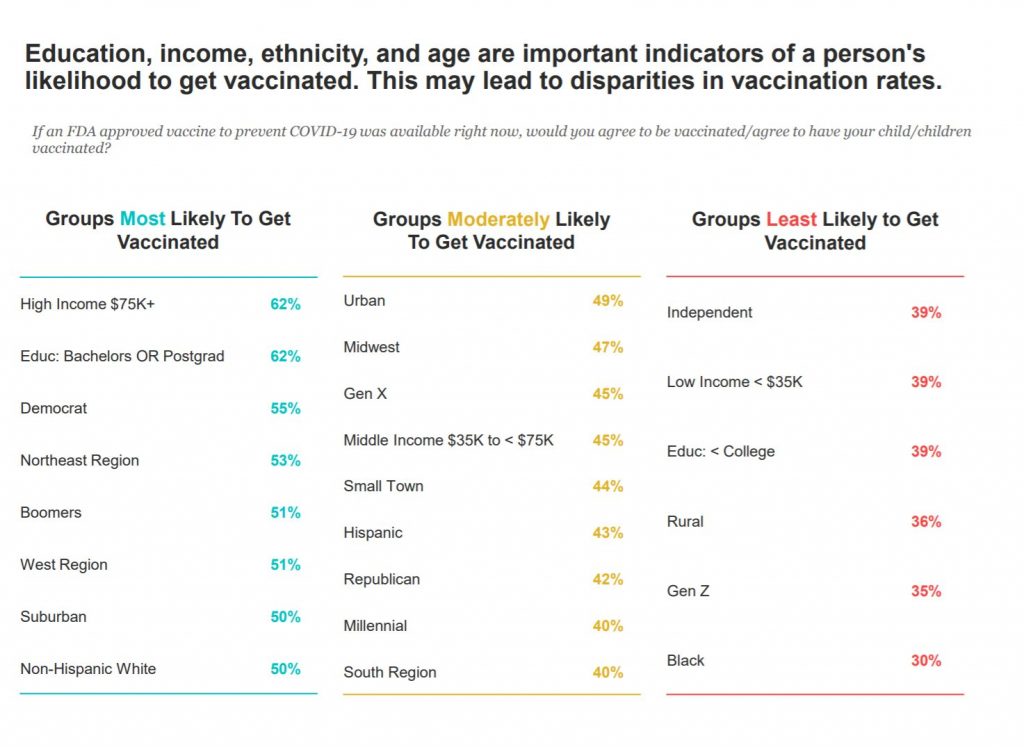
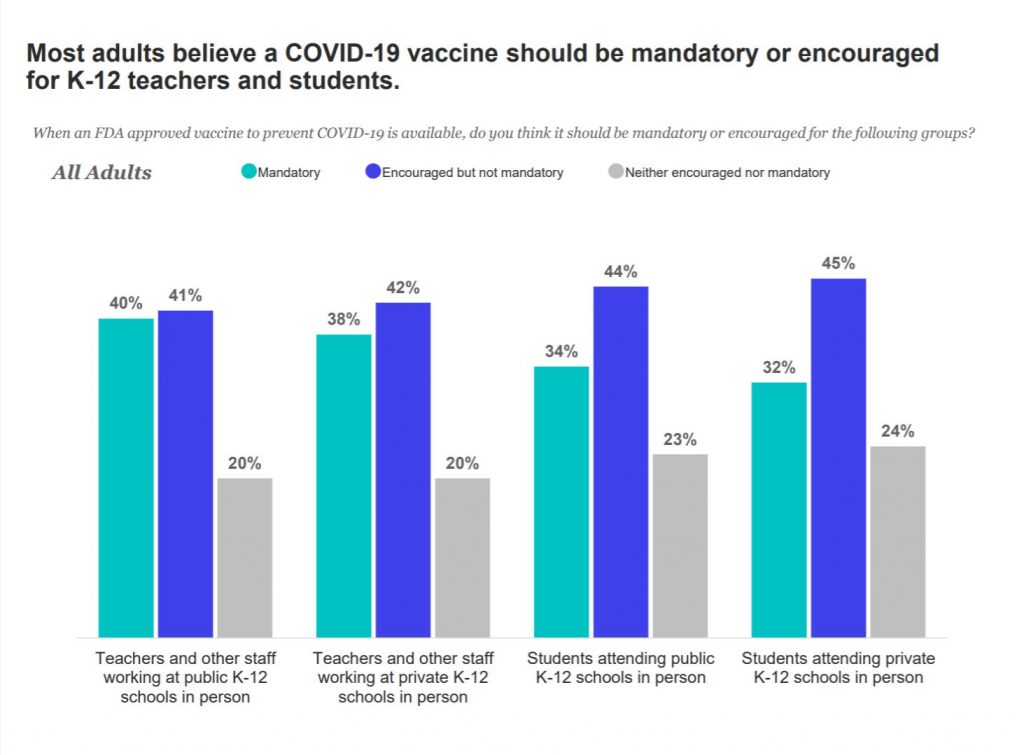
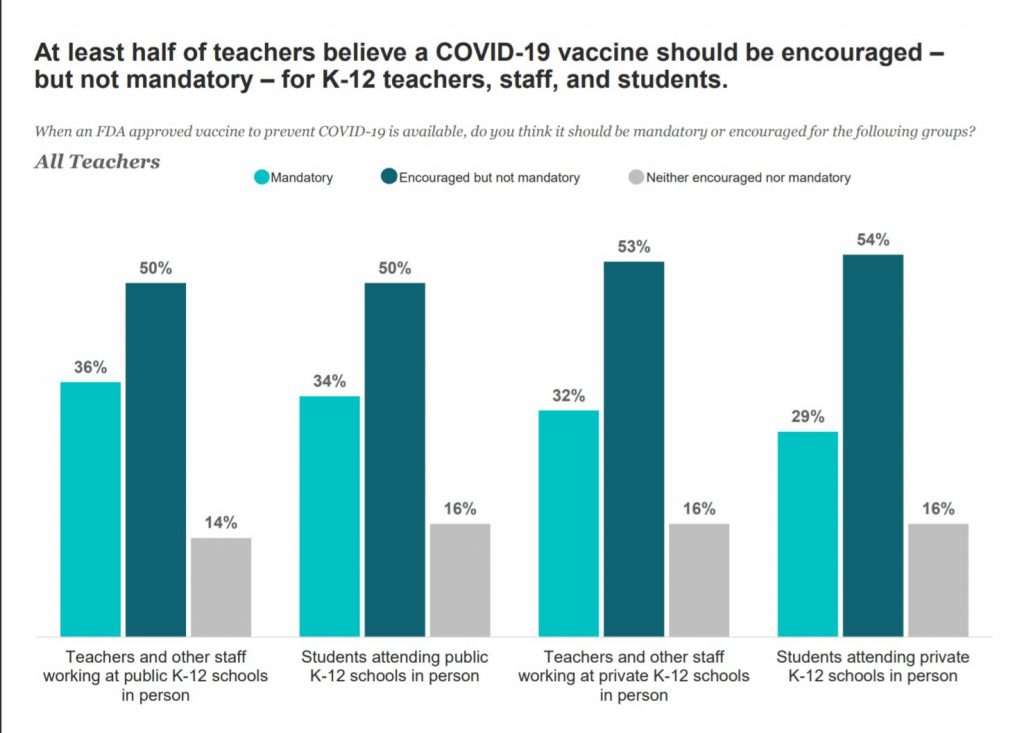
2. Solid majorities of parents (65%) and teachers (61%) do not expect students to safely return to in-person schooling before March. This is the first time we have asked this question to teachers, and the expecation of 3+ months for parents remains relatively unchanged since November. Depending on how the vaccines are distributed in the coming weeks, it will be interesting to see how the progress, or lack thereof, affects teacher and parent expectations.
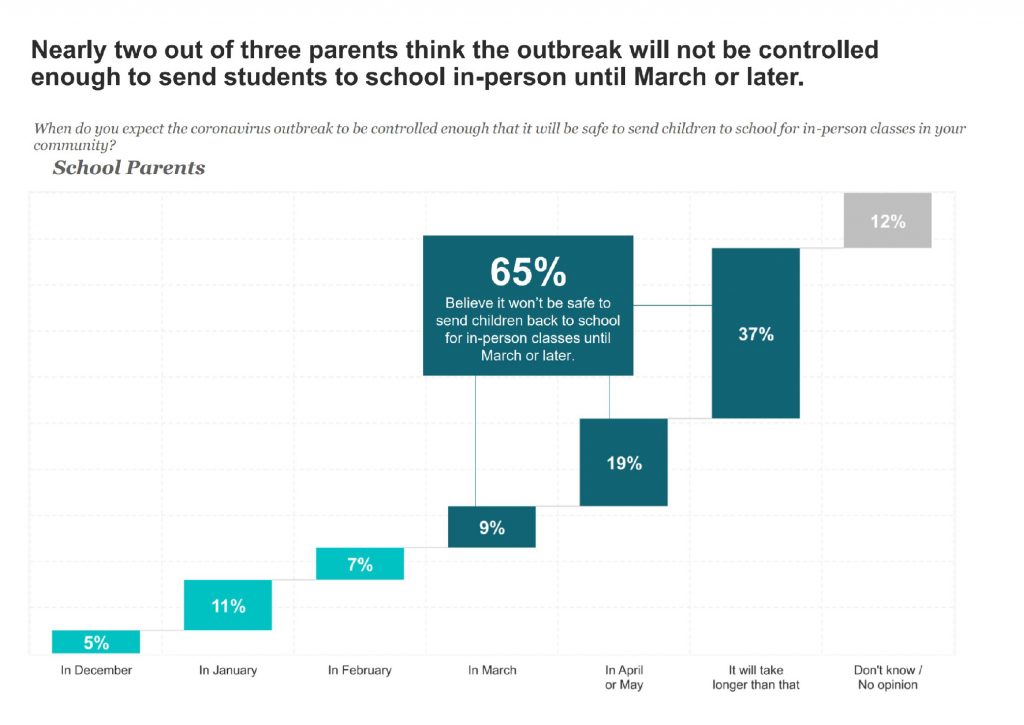
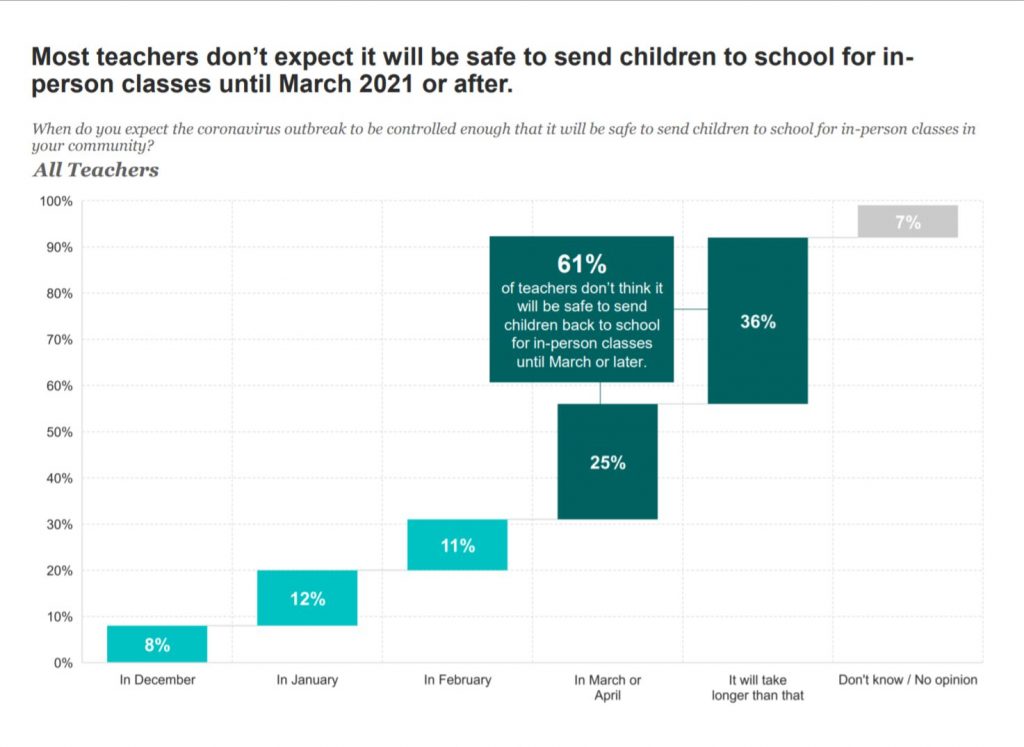
3. Large proportions of parents and teachers expressed uneasiness in December about a return to in-person schooling. More than half of parents (54%) said they were not comfortable returning their children to school. That figure has held steady since November. A slightly smaller percentage of teachers (48%) had similar discomfort about going back to their school buildings in person.
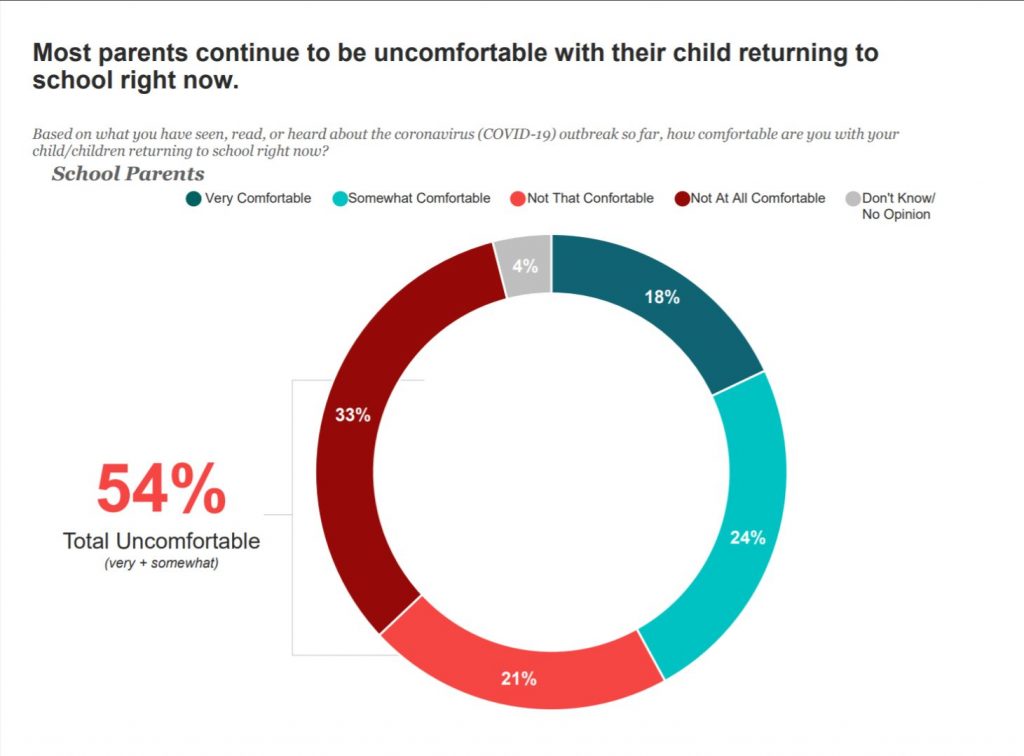
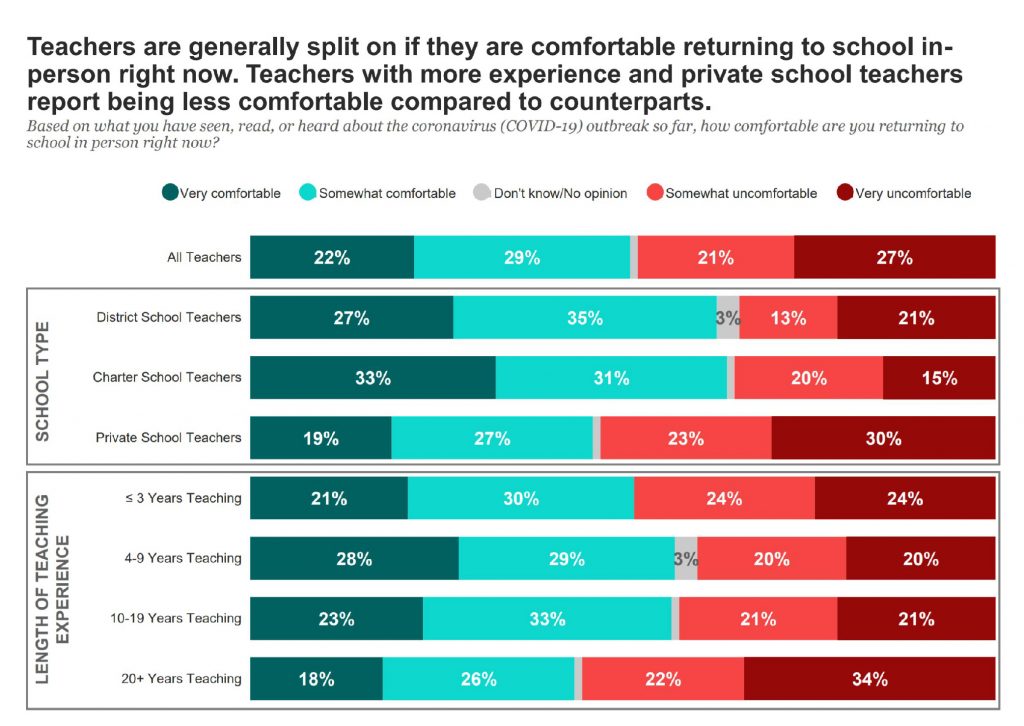
4. Teacher morale is taking a hit right now. Fifty-three percent of surveyed teachers under the age 55 indicated they have considered leaving the profession in the last three months. An even larger proportion of educators age 55+ (63%) said they have considered retiring from teaching altogether. Based on asking a Net Promoter Score question, we observe there are fewer “promoters” of teaching across all school sectors since September. Those trend lines have dropped by at least 3 points (private school teachers) and as much as 11 points (charter school teachers) over the final quarter in 2020. An escalating pandemic during a school year is likely compounding the toll on America’s educators.
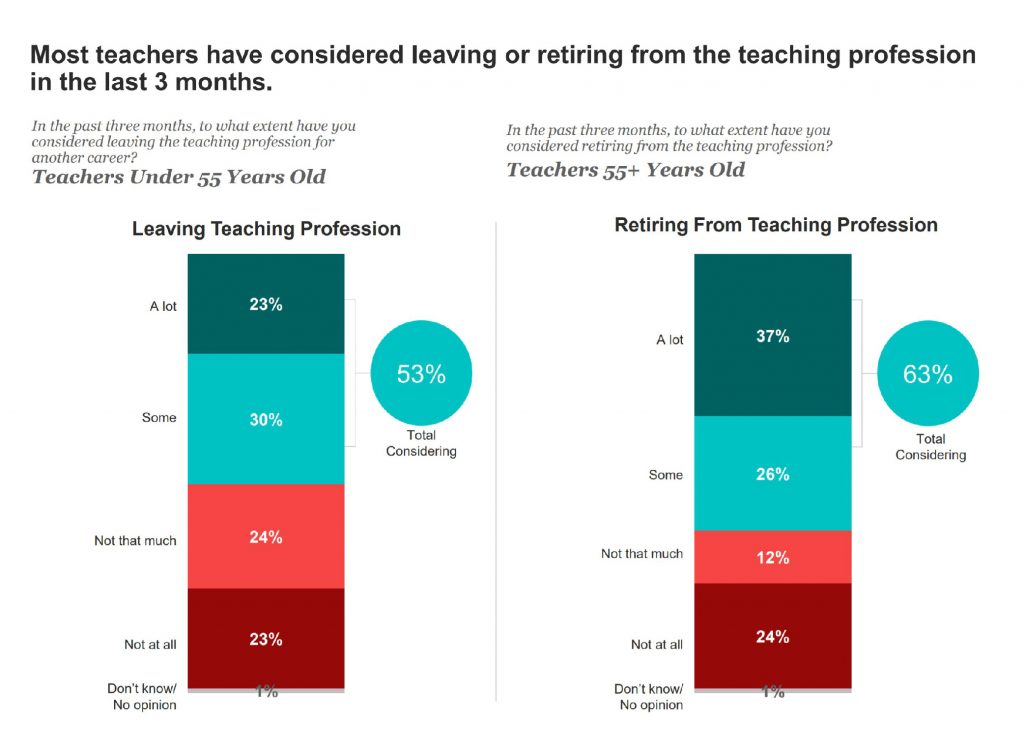
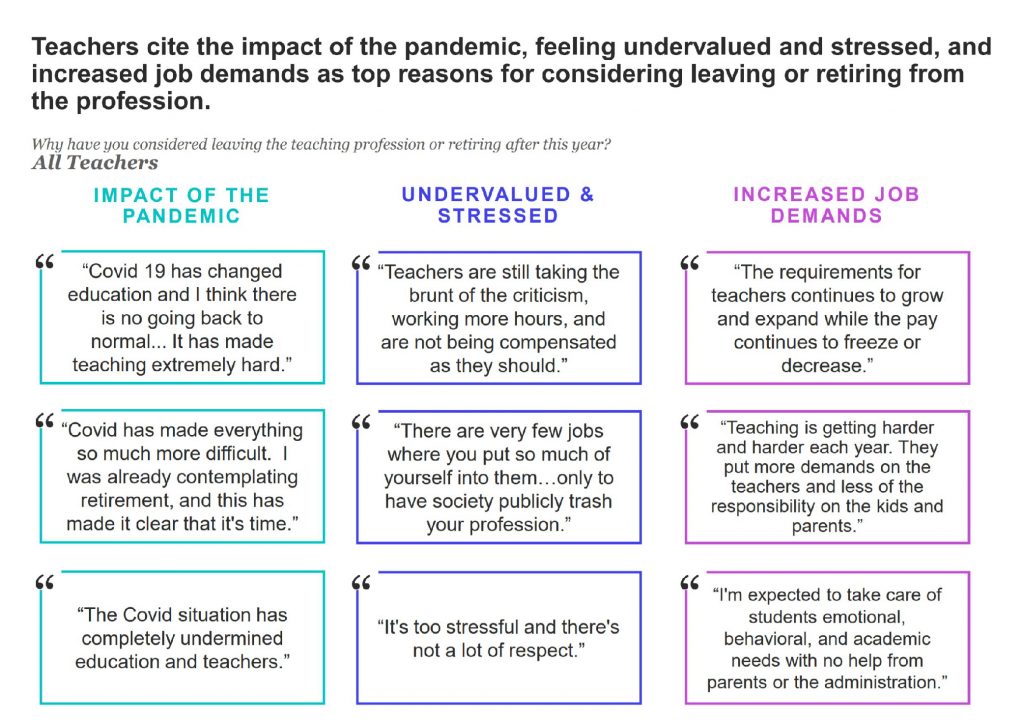
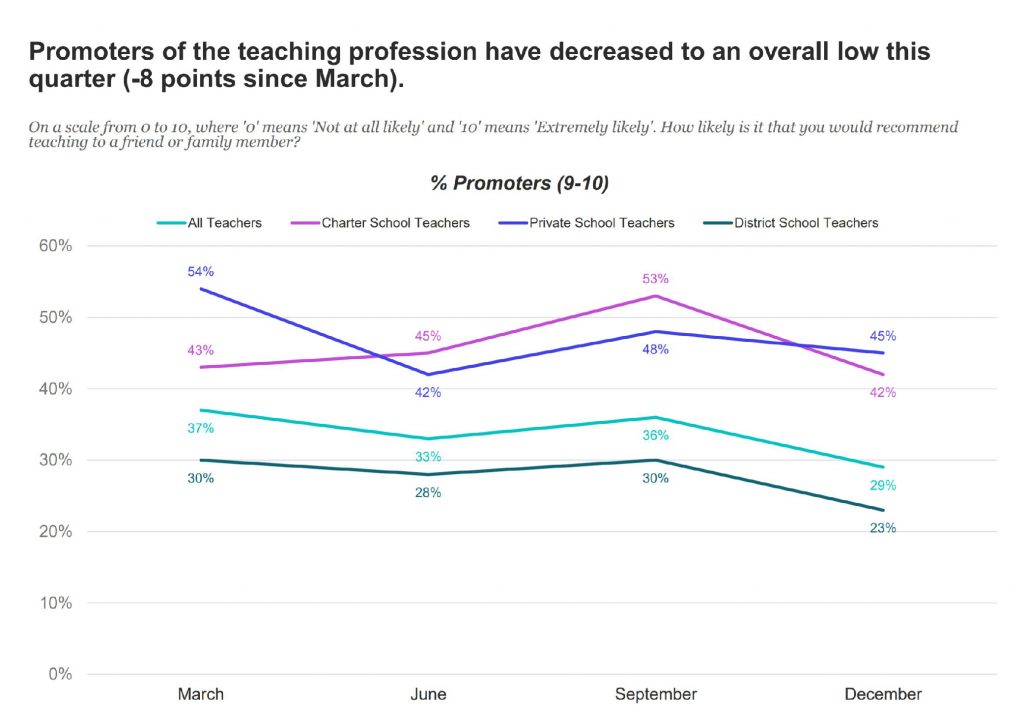
5. Participation and interest in learning pods holds steady among parents. Nearly one out of five surveyed parents report they are participating in a learning pod with other families. More than one-third of parents (37%) have either joined a learning pod or are looking to form one. And three-quarters say they are participating in a pod as a supplement to regular schooling, not as a replacement for school. Socialization appears to be an important reason among those participating or looking into pods. Whereas those not participating in a pod assert they are unsafe, unnecessary or too expensive. On average, parents say they are willing to spend $490 per month for a child to be in a single learning pod. That response varies quite a bit by certain demographics such as household income, community type, and geographic region.
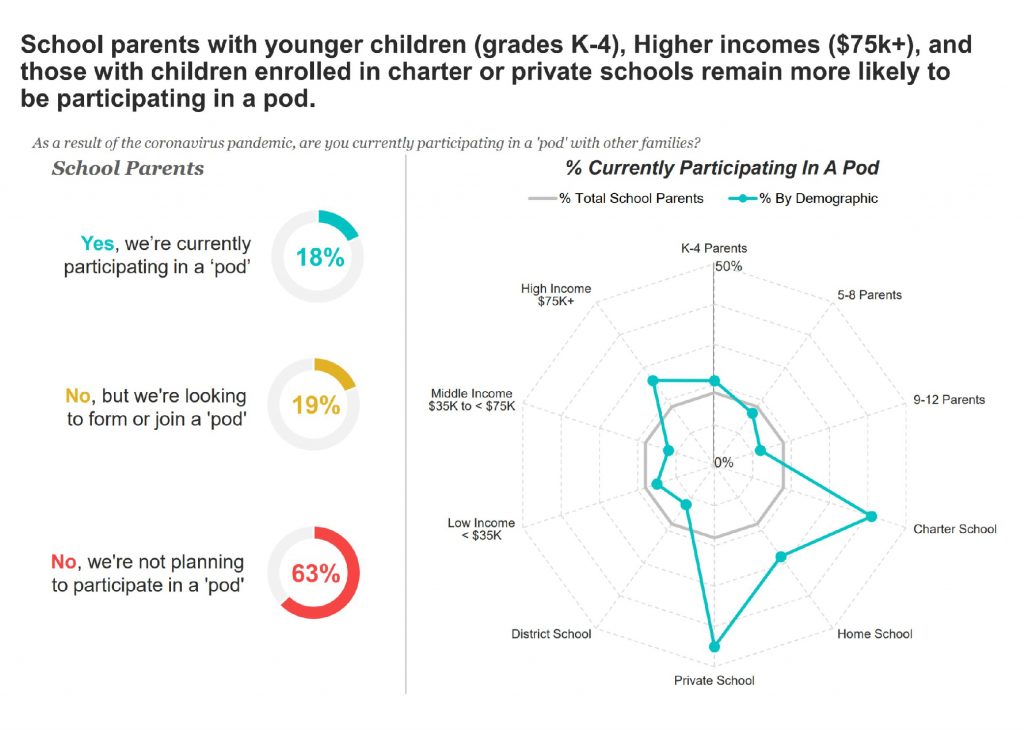
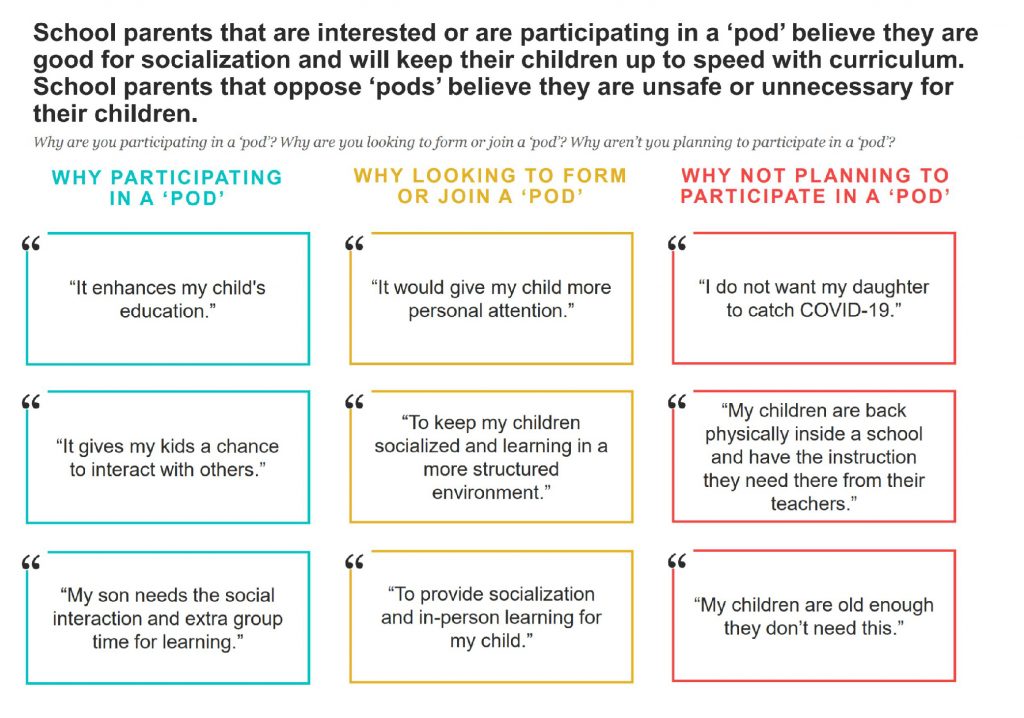
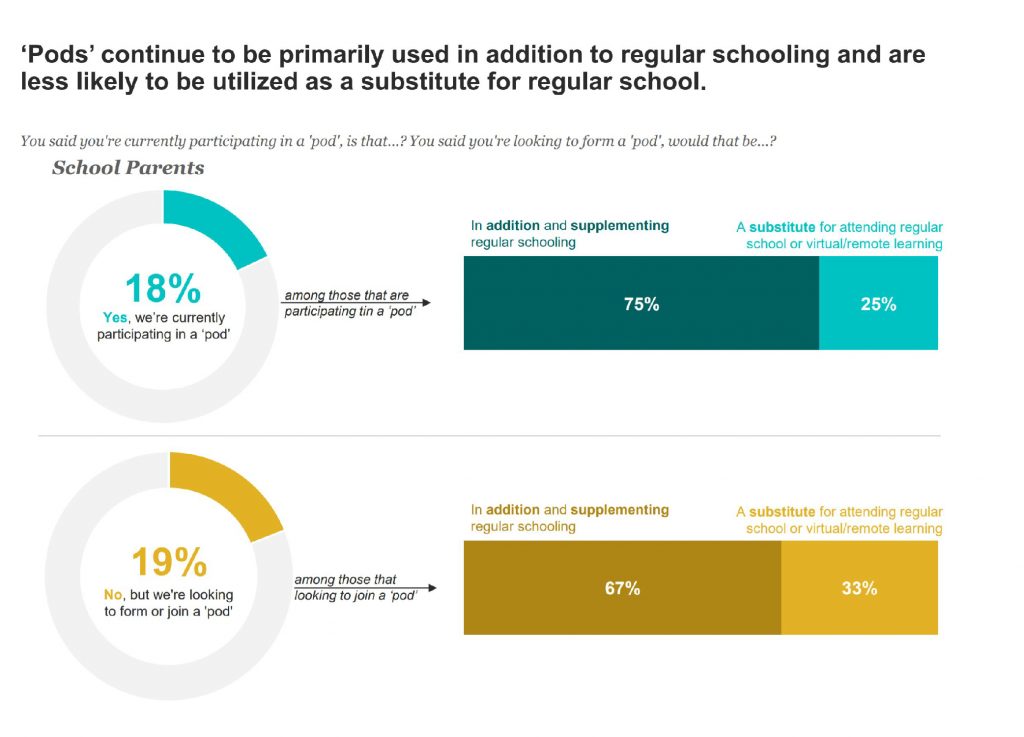
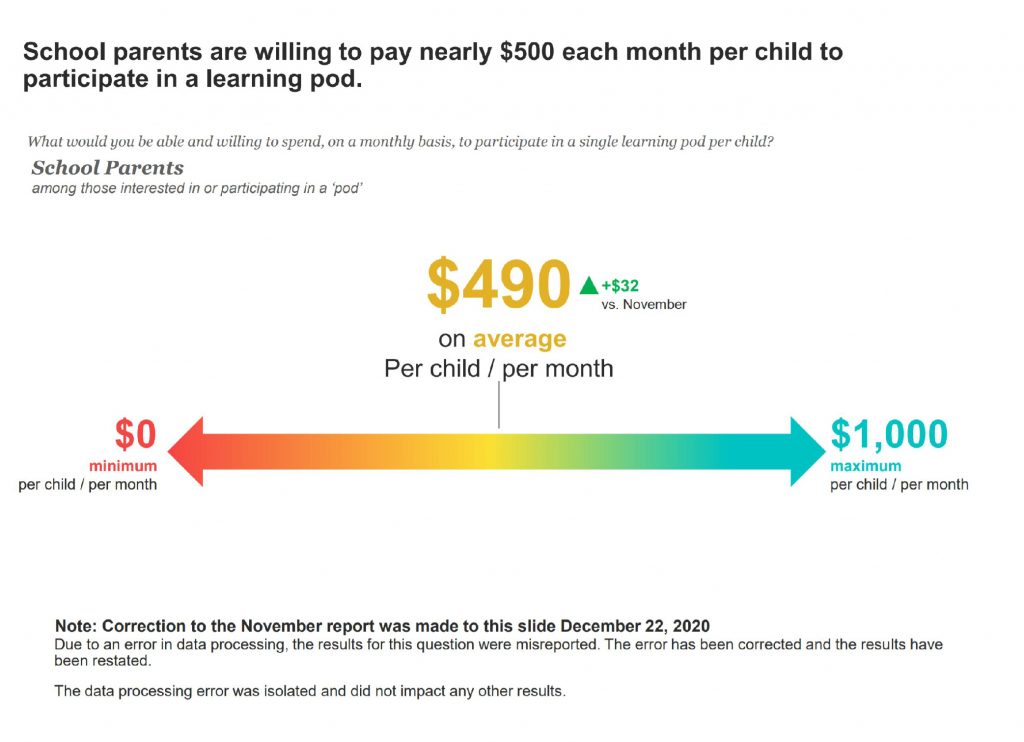
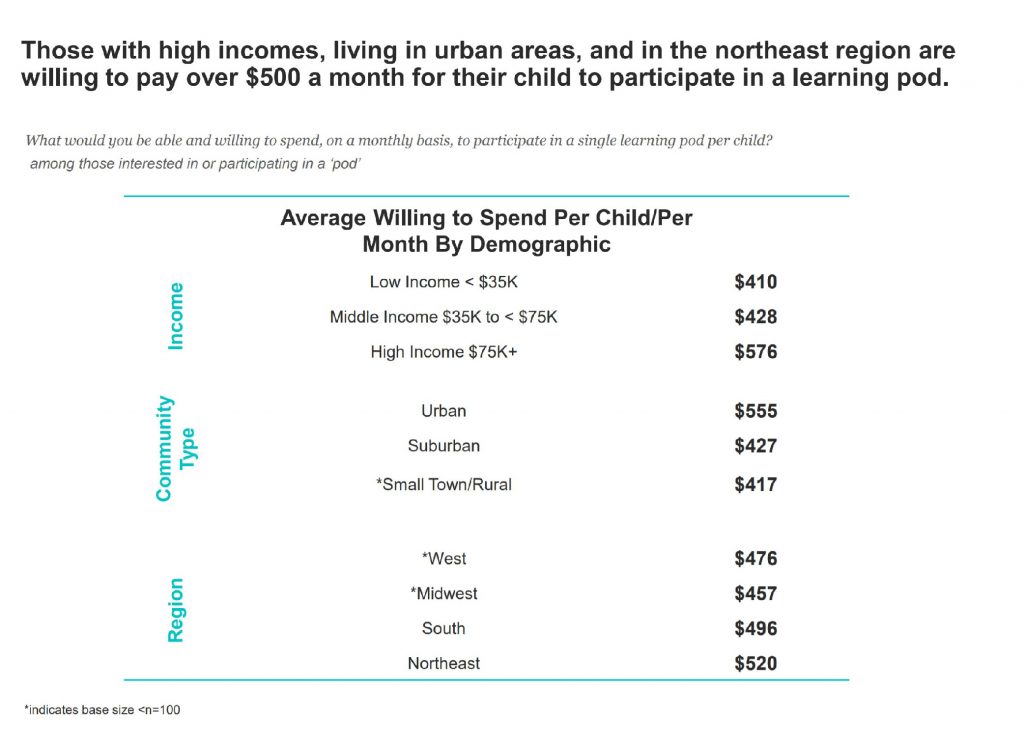
6. A majority of educators expressed interest in teaching in a learning pod. There are substantial sector differences when looking among those “very interested.” Charter school teachers were more than twice as likely as district school teachers to give that response.
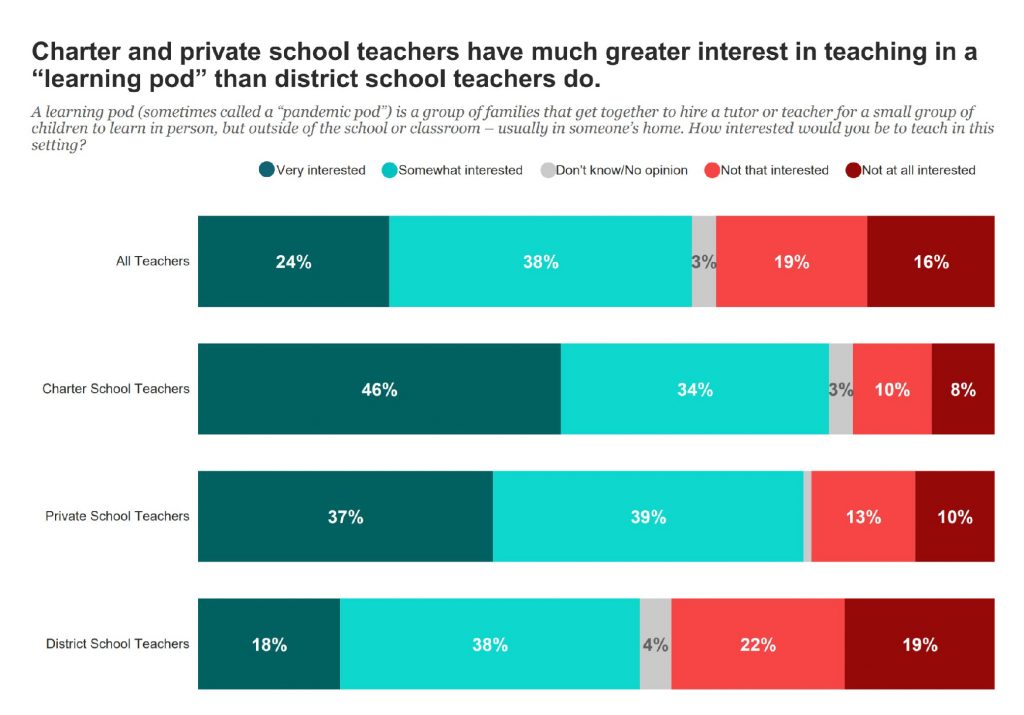
7. The predominant view about K–12 education is negative, but comparatively school parents tend to be a little more optimistic than teachers. That observation is apparent when considering things at the national level—the gap is eight percentage points. Members of the general public who do not have school-age children are generally the most negative group among observed demographics below.
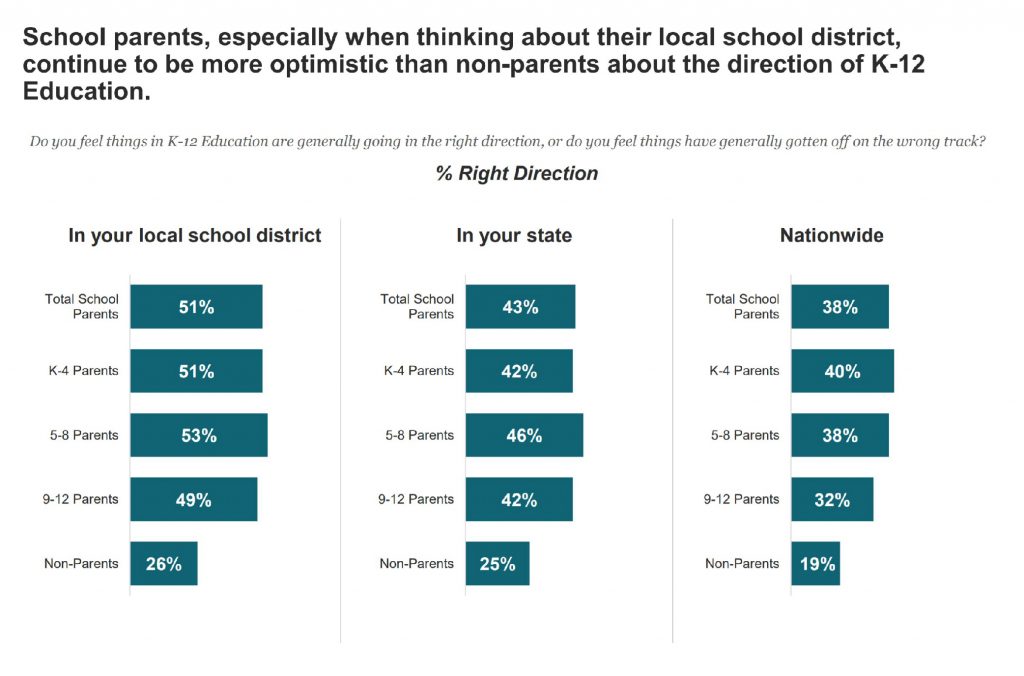
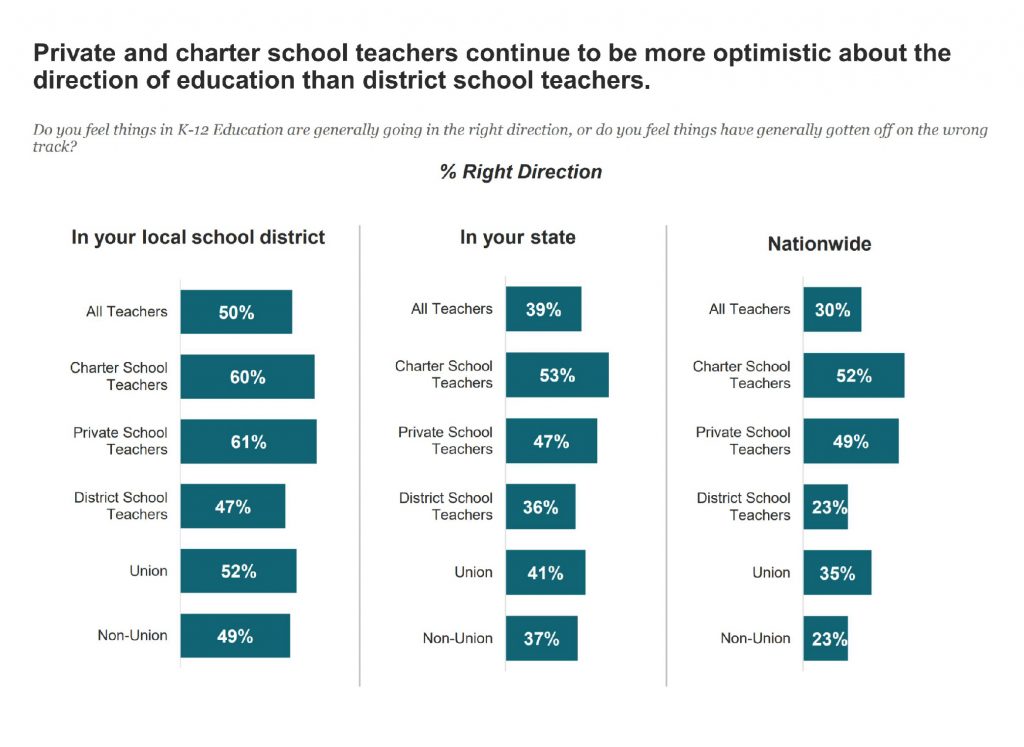
8. Public and parental support continues to be high for public charter schools, vouchers and education savings accounts during the pandemic, particularly among school parents. As with other groups, when teachers learn descriptions about these general policies, they are much more likely to express support at higher levels. What changes have we observed? Teachers’ strong support of charter schools took a seven-point dive since September. Similarly, teachers’ strong support for ESAs dipped six points, although soft support increased over the same period. Parents’ views on charters and ESAs remain relatively unchanged since November. ESAs garner a larger proportion of strong support from parents, but more than 70 percent say they generally support charter schools and ESAs.
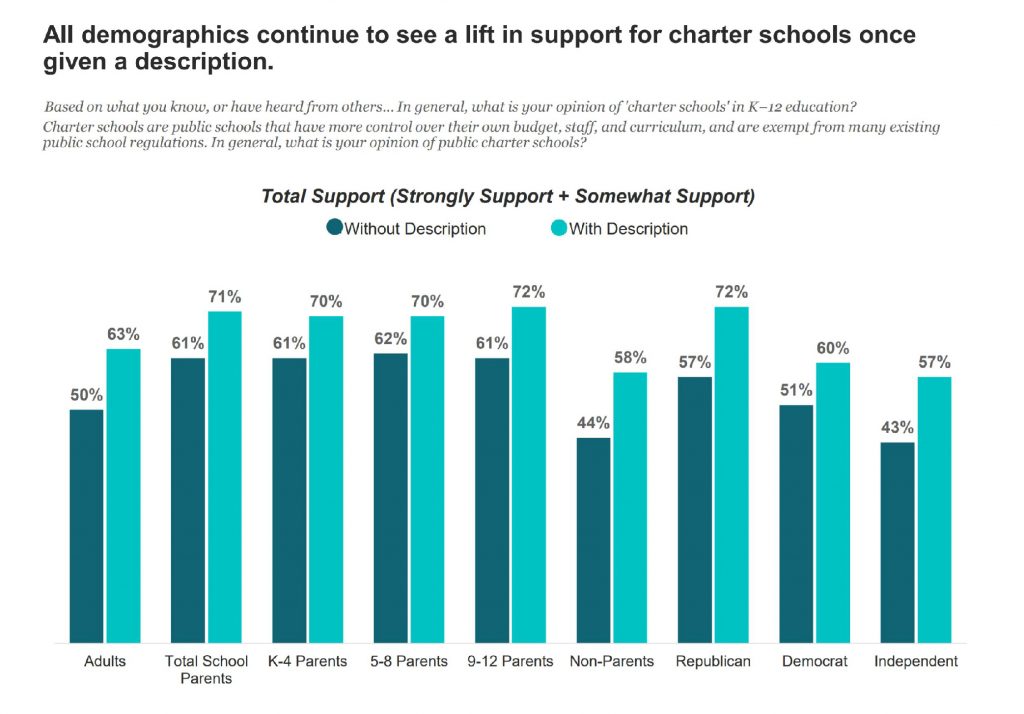
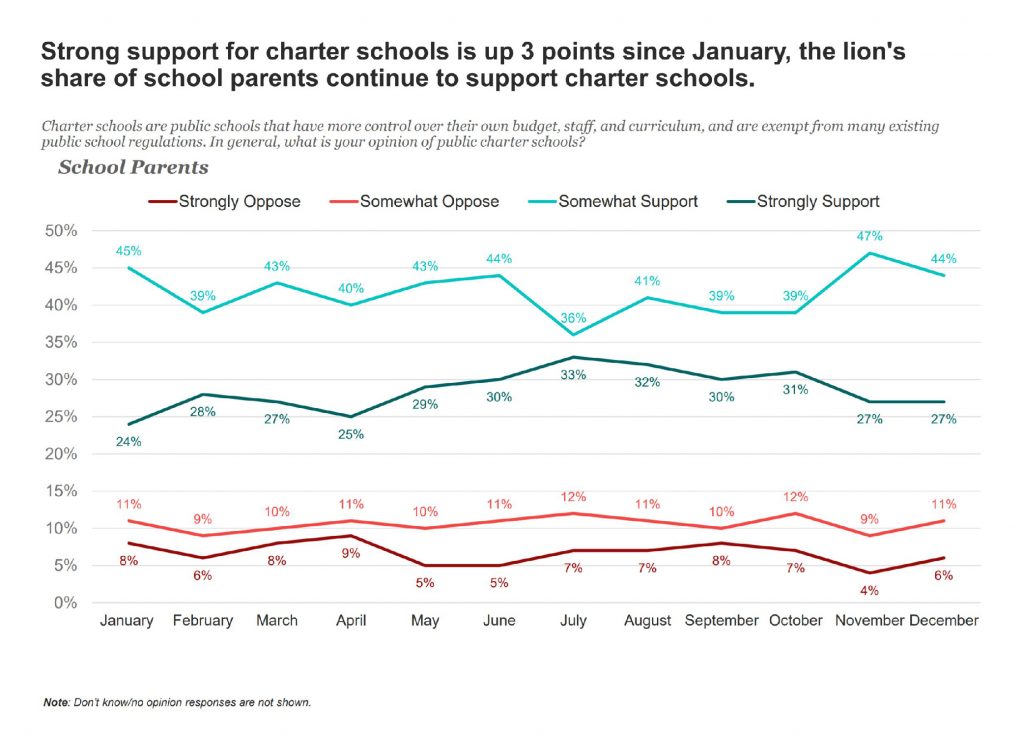
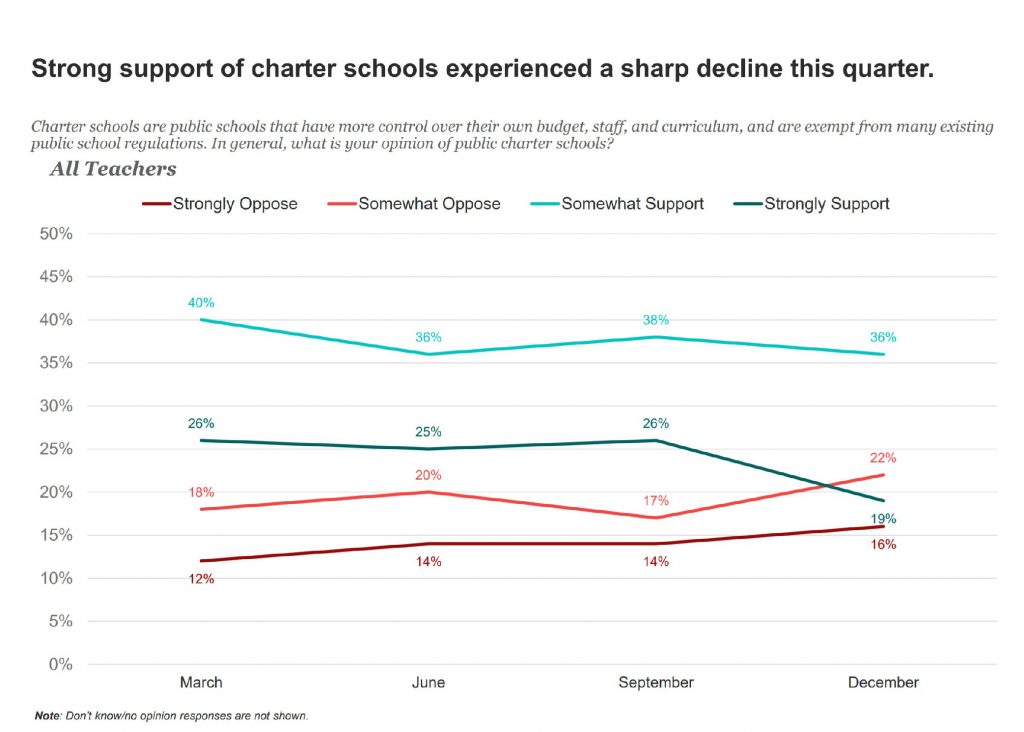
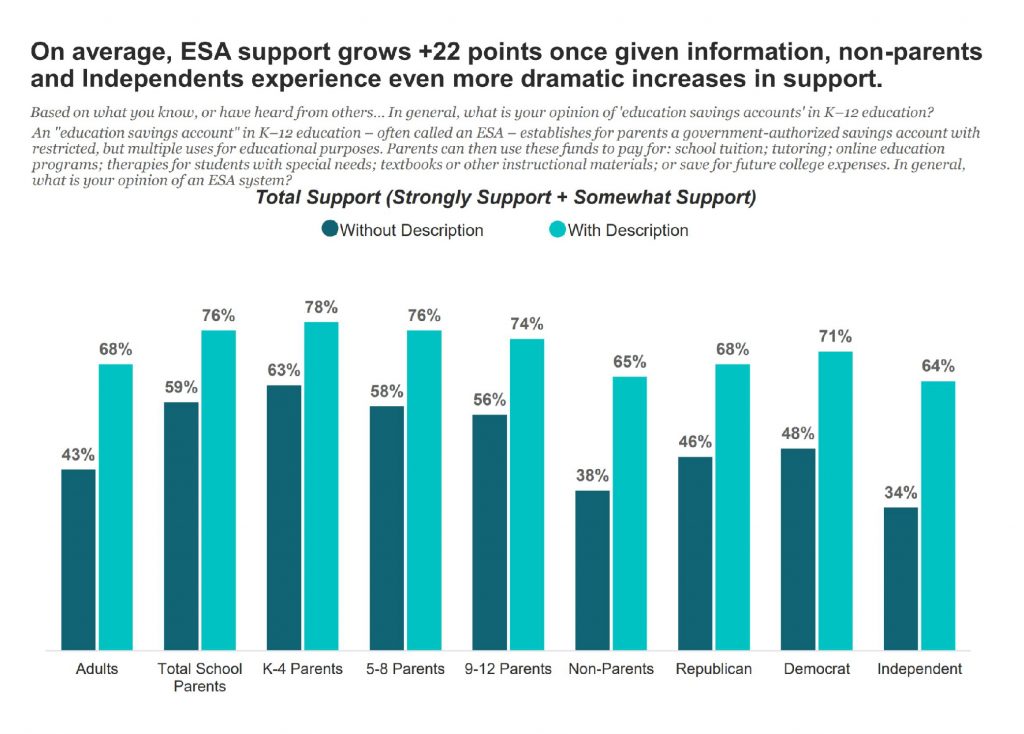
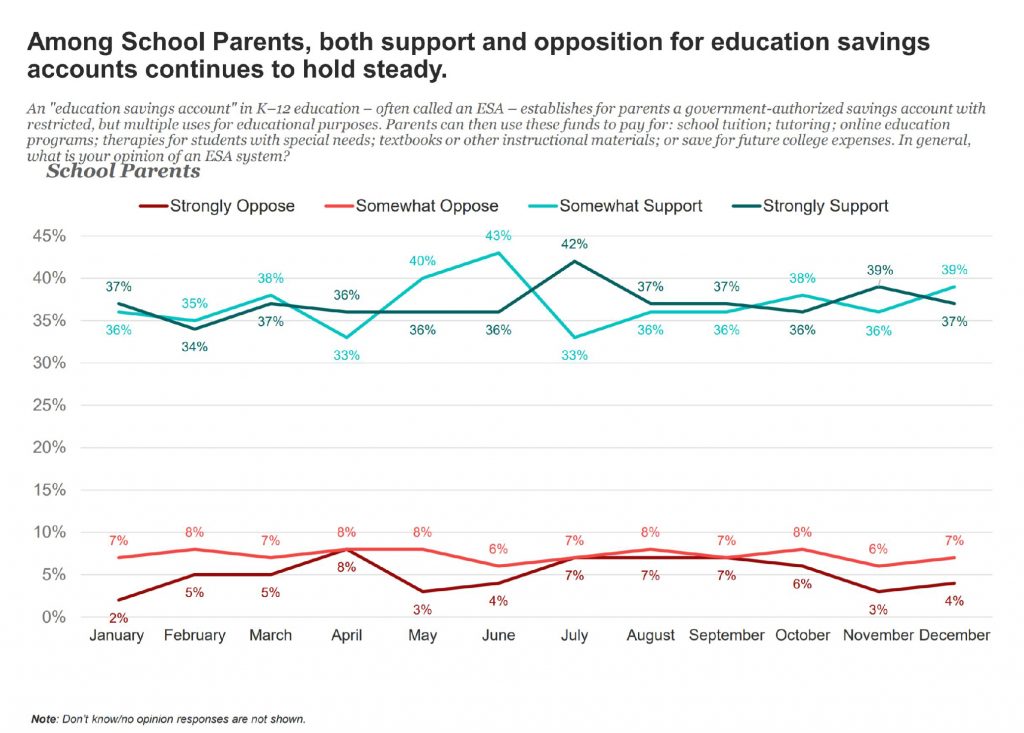
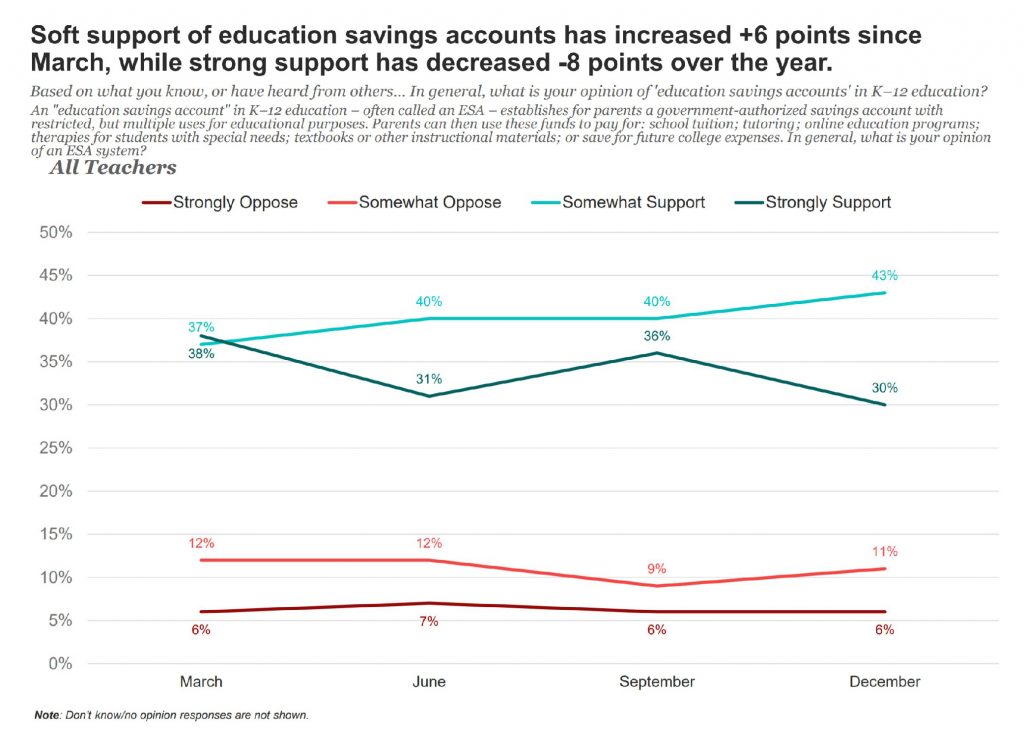
NOTE: A lot of organizations are doing great survey work in the turbulent times we are living in right now. We’ve started to catalog those polls and surveys asking COVID-19 and pandemic questions related to K–12 education. That archive page will be updated on a rolling basis roughly a couple times per month. Please don’t hesitate to let me know if we are missing any to date.




